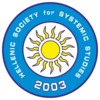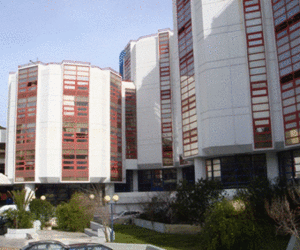Author Guidelines
Abstract Submission
Due to the large number of papers expected for this conference, the Scientific Committee only allows an author to present up to three abtracts. Therefore, if multiple abtracts are accepted for presentation different co-authors need to present each abtract.
Extended abstracts should be up to 500 words with up to six keywords.
The Abstract On-line Form must be used.
Abstracts must be only submitted via the online procedure
The deadlines for the abstract submission are presented in the "Abstract & Paper Submission - Important Dates" of this site.Please ensure to adhere to the rules and guidelines for submission of your abstract.
Rules for Abstract Submission
- The 2019 HSSS Abstract form must be used (specific guidelines included).
- All abstracts must be submitted and presented in clear English with accurate grammar and spelling of a quality suitable for publication. If you need help, please arrange for the review of your abstract by a colleague who is a native English speaker, by a university specific publications office (or other similar facility) or by a copy editor, prior to submission.
- The presenting author is required to ensure that all co-authors are aware of the content of the abstract before submission to the secretariat.
- Please note that all abstracts accepted for presentation will be published prior to the congress.
- Only abstracts with results will be accepted for review. Results may be preliminary, and the final results can be updated in the paper.
- Submitted abstracts should include non-published data.
- The Programme Committee will review abstracts. Following this, information regarding acceptance, and scheduling will be sent to the abstract submitter.
- Only abstracts of authors who have paid their registration fees will be scheduled and included in the Final Programme.
- Please note that abstracts must be SUBMITTED before the deadline in order to be sent to review for inclusion in the Scientific Programme.
Authors’ Statement of Consent
Please note that by submitting your abstract, you are consenting to the following:
- I confirm that I previewed this abstract and that all information is correct. I accept that the content of this abstract cannot be modified or corrected after final submission and I am aware that it will be published exactly as submitted.
- Submission of the abstract constitutes my consent to publication (e.g. congress website, programmes, other promotions, etc.)
- The Abstract Submitter warrants and represents that he/she is the sole owner or has the rights of all the information and content ("Content") provided to Hellenic Society of Systemic Studies (HSSS) and University of Piraeus – Dept of Informatics (Hereafter: “The Organizers"). The publication of the abstract does not infringe any third party rights including, but not limited to, intellectual property rights.
- The Abstract Submitter grants the Organisers a royalty-free, perpetual, irrevocable nonexclusive license to use, reproduce, publish, translate, distribute, and display the Content.
- The Organizers reserve the right to remove from any publication an abstract which does not comply with the above.
- I herewith confirm that the contact details saved in this process are those of the corresponding author, who will be notified about the status of the abstract. The corresponding author is responsible for informing the other authors about the status of the abstract.
Publication Opportunity
Abstracts presented at the conference will be published in the conference Program & Abstract Book (Proceedings will not be published).
Authors, who would like further to publish their work, can submit their papers to the International Journal of Applied Systemic Studies (IJASS) (providing that there are high quality papers that are relevant to the main scope of each of this journal) and be considered for publication in special issues of the IJASS.
Emphasis will be placed on the publication of articles, which seek to link theory with application or critically analyze real work-group situations with the objective of identifying good system engineering practices, standards and concepts in many fields (e.g. product development, manufacturing etc). Papers accepted for publication are double blind refereed to ensure academic rigor and integrity.



